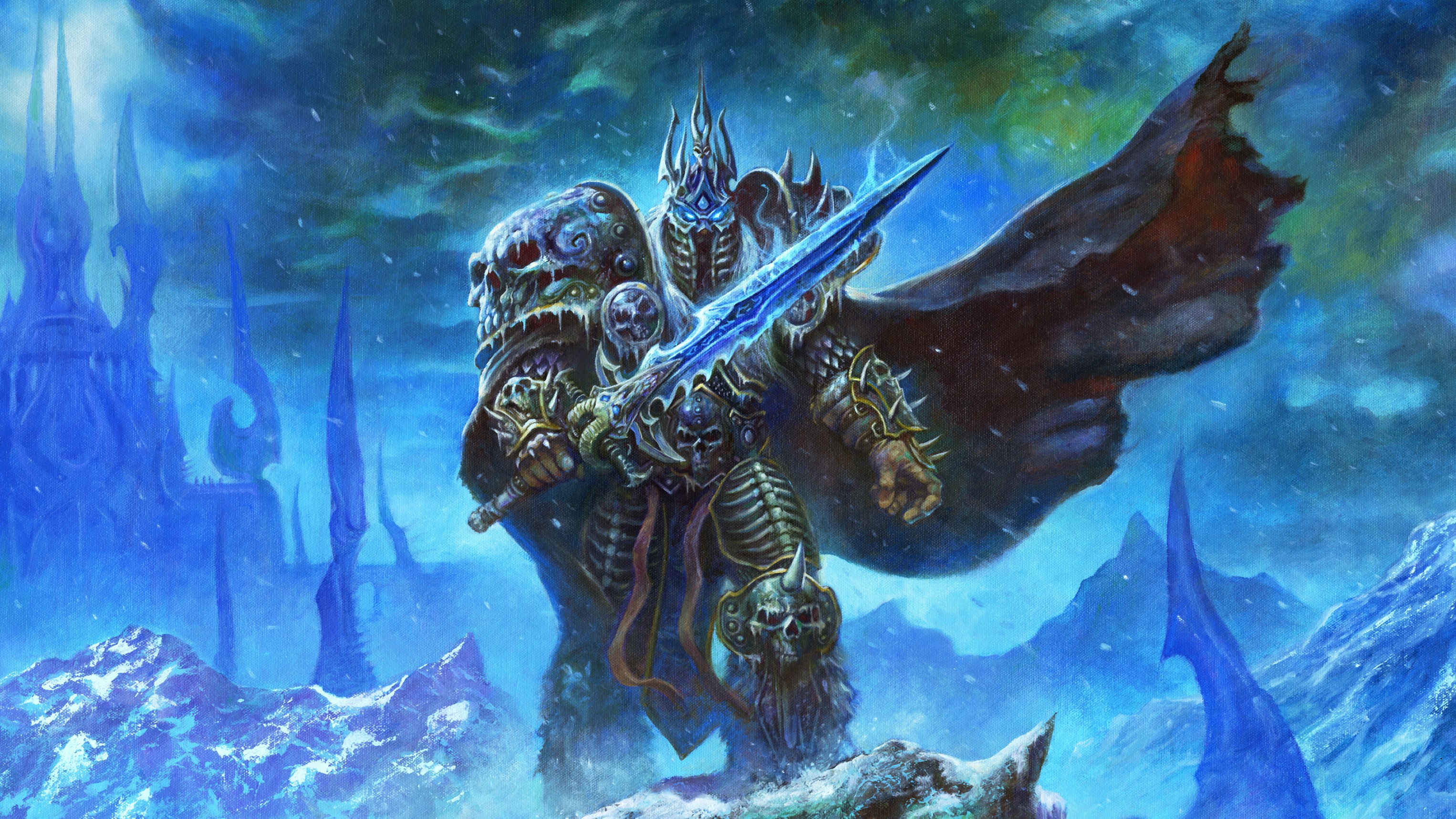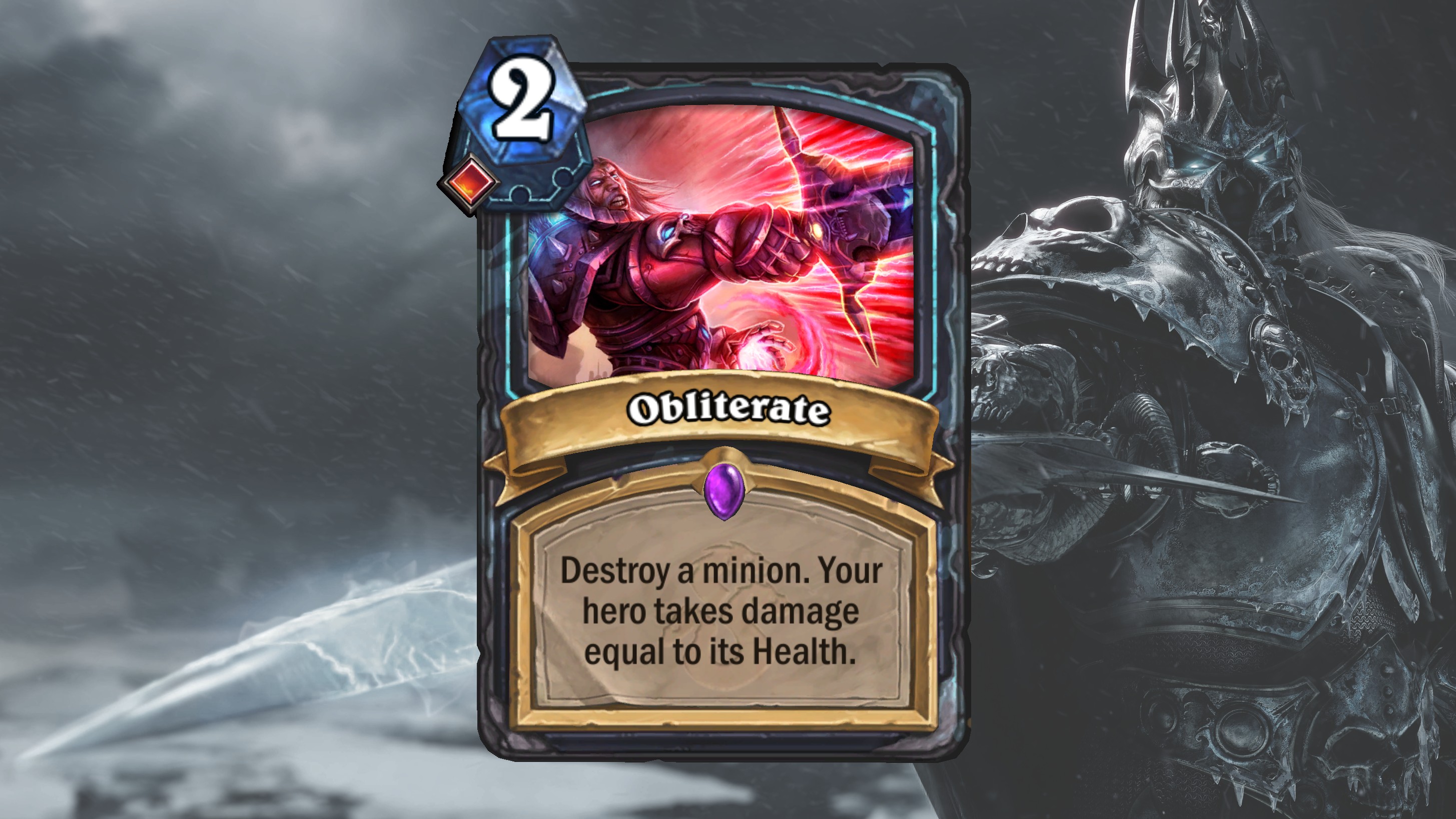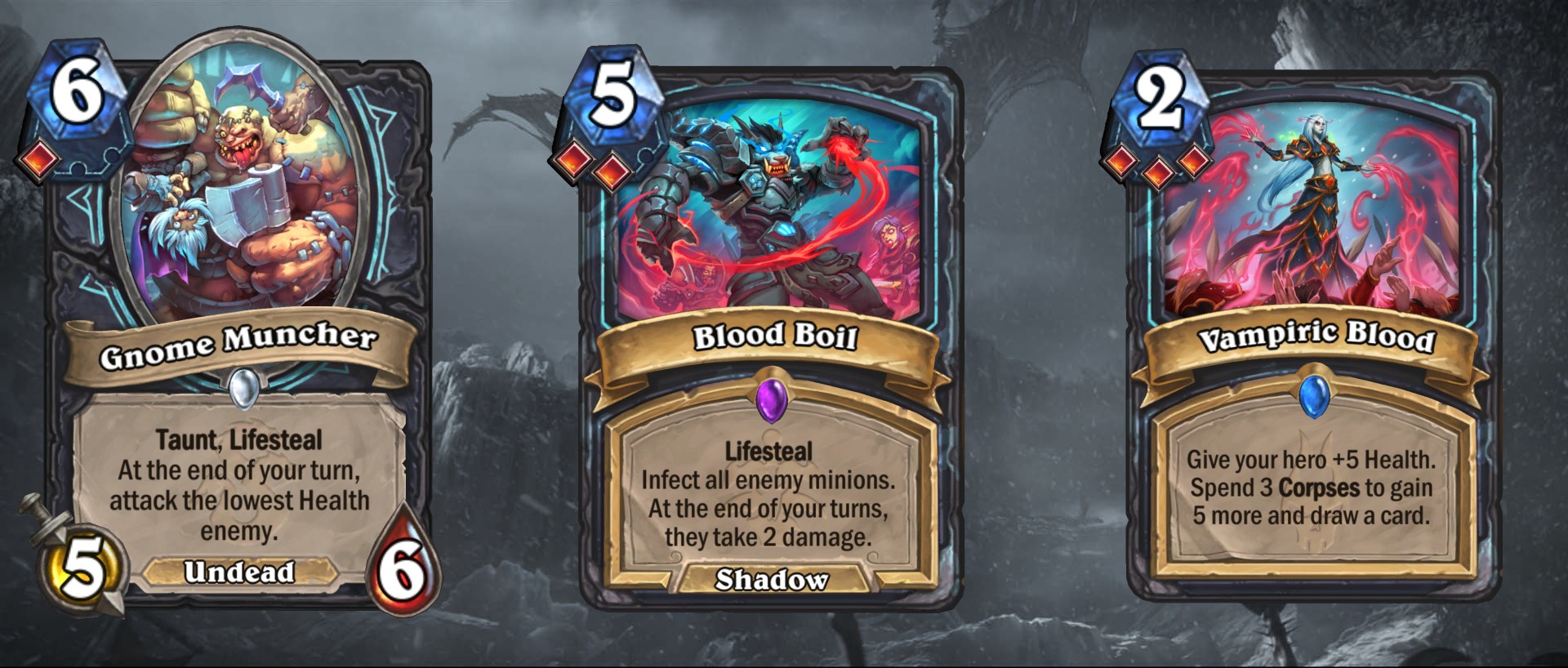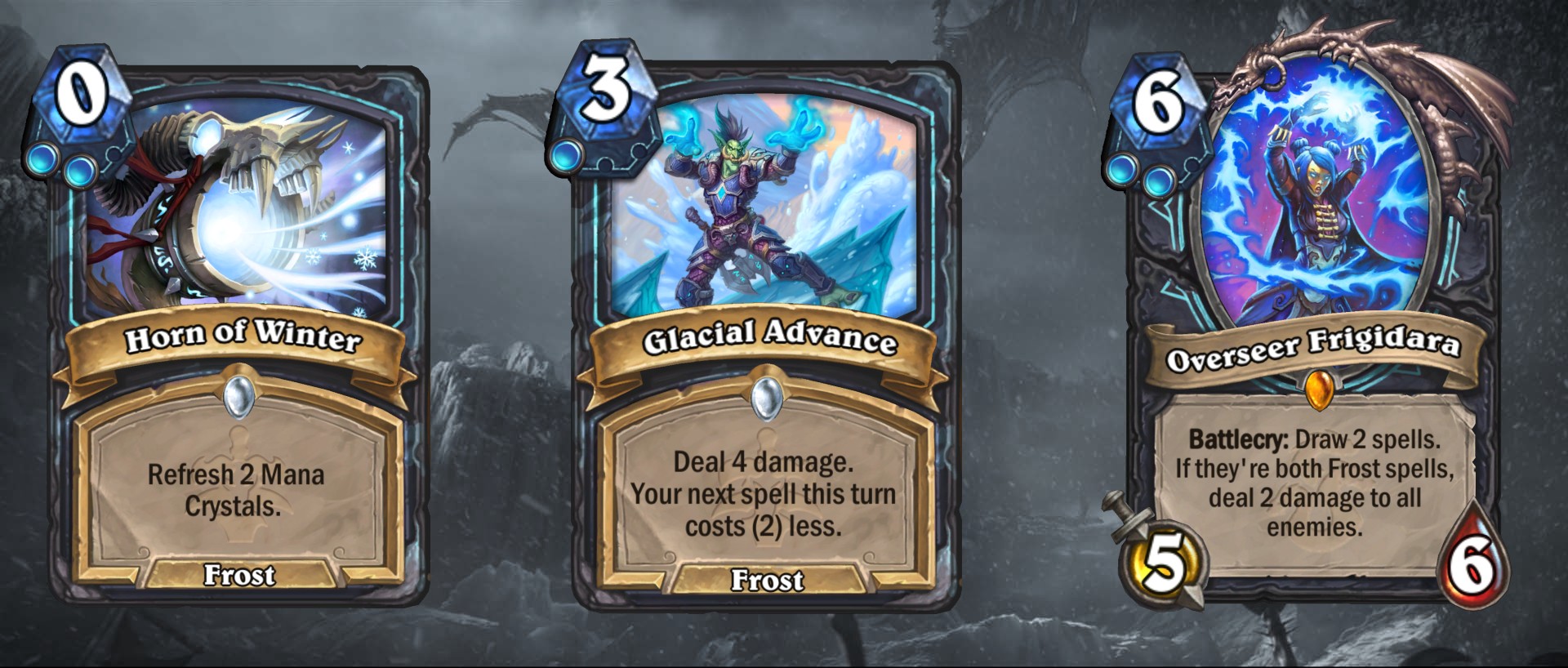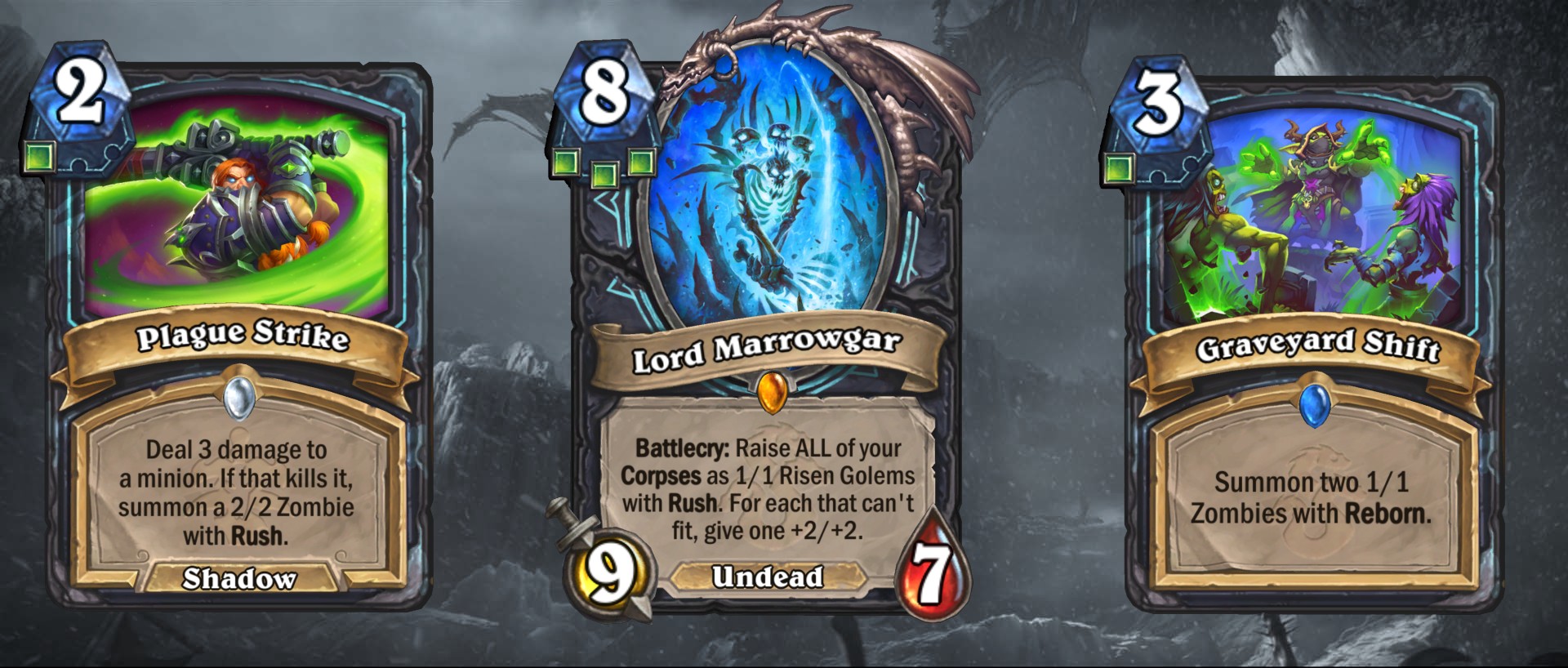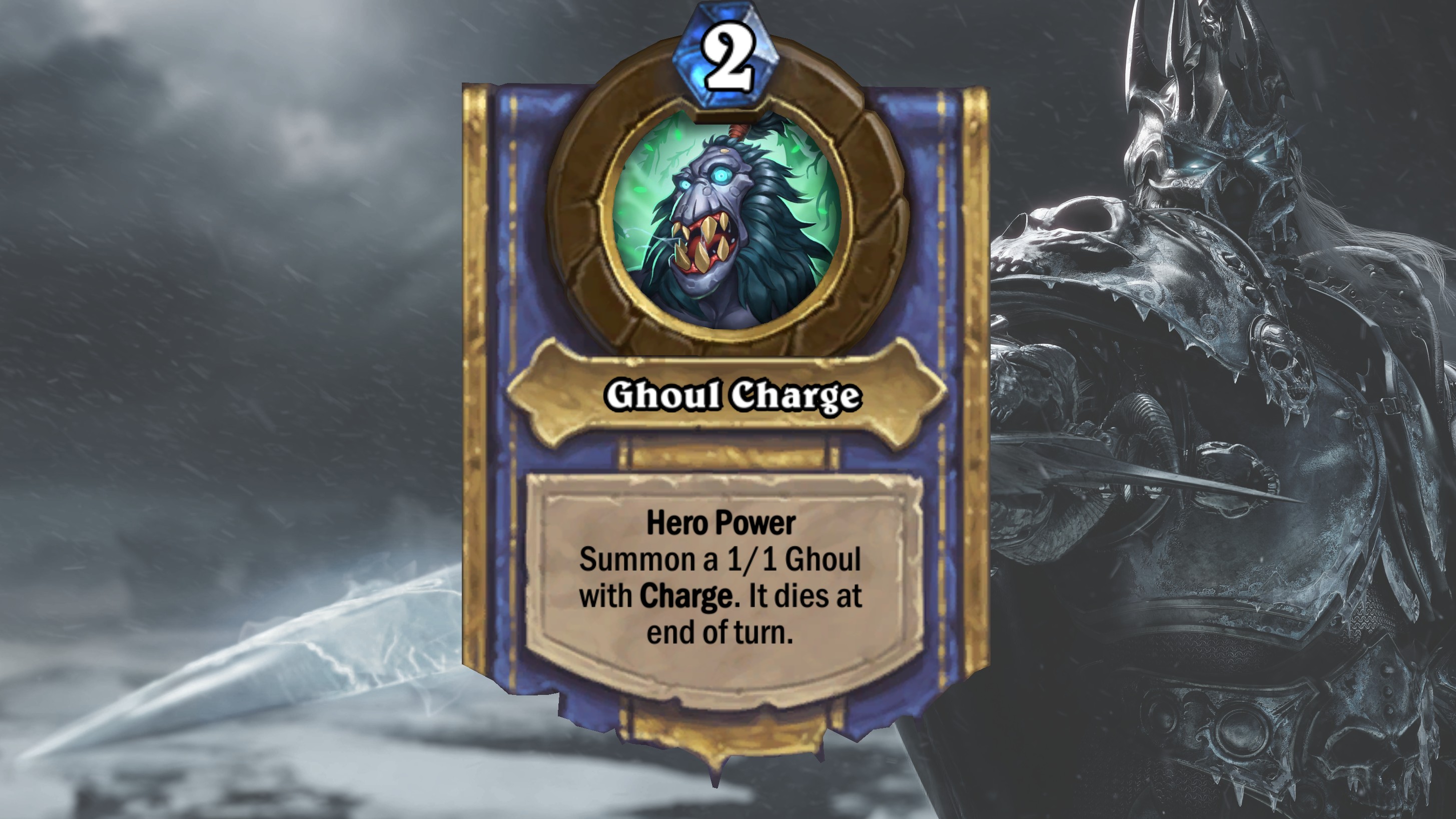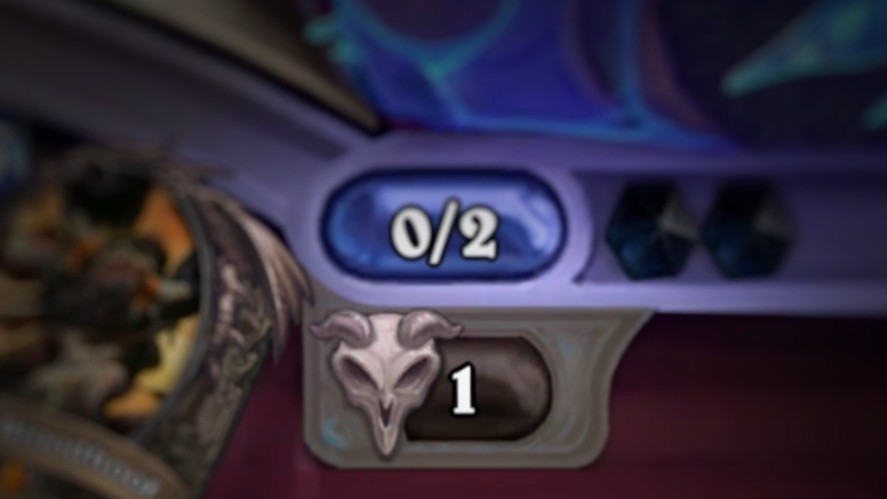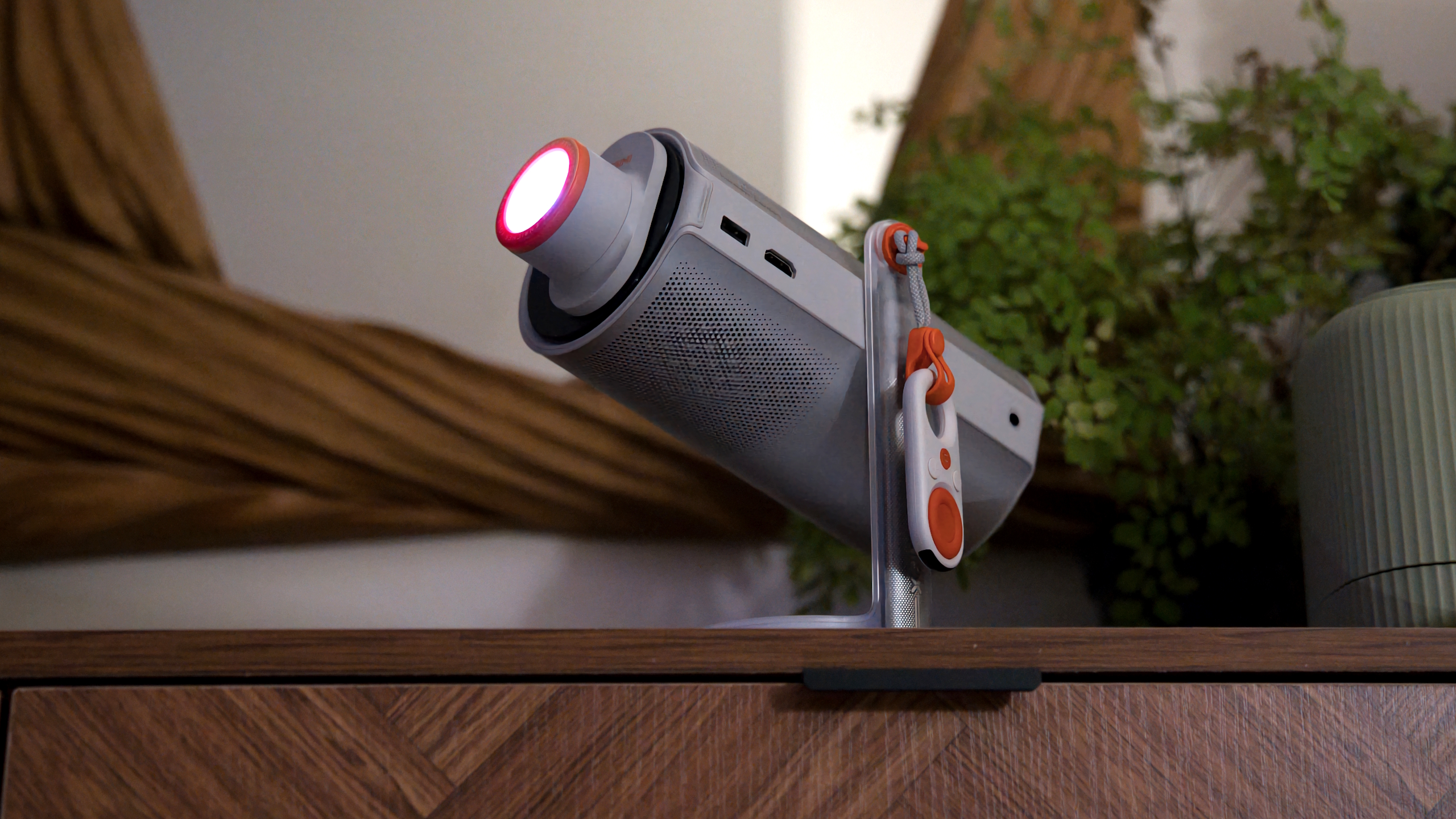Rune Combos? Exploding Corpses? Here's what you need to know about Hearthstone's Death Knight class
It's going to be the hot new thing when it drops, so prepare yourself with our guide to all things undead.
Hearthstone has only added one new class since launch—Demon Hunter, in April 2020—and its arrival was incredibly memorable. It was also incredibly broken. In fact, Demon Hunter was so overpowered that multiple cards had to be nerfed a day later. Over time, the design of the class has shifted, and it now has a unique identity beyond just being busted. The month Demon Hunter was added, more than 10 times the normal number of players hit legend rank, which gives a sense of the excitement a new class generates.
On December 6, with the release of March of the Lich King, Hearthstone gets its second new class: Death Knight. Arthas Menethil is arguably even bigger than Illidan Stormrange in terms of World of Warcraft's most iconic characters, and the only logical choice to front the new Death Knight class. Fans have long theorized about how a Death Knight class might work in Hearthstone, and it's not a shock to learn that raising the dead and using runes are major themes of the finished class.
If you've read the main announcement or watched Blizzard's accompanying video, you may be feeling a little overwhelmed. Death Knight decks are built differently, and the class has a unique gameplay mechanic, so there's a lot of info to process. Here's what you need to know.
Rune to grow
Death Knight's two major distinctions are an additional type of resource and an extra form of deck customization. Let's talk about Runes first, and no, these are not the same as the similarly-named Runestones, which are Hearthstone's unloved premium currency.
Some (but not all) Death Knight cards have a rune value between one and three, which can be found underneath the Mana cost number. Runes can be Blood (red diamonds), Frost (blue circles), or Unholy (green squares). Each Death Knight card features some number of one rune type, but never a mix of rune types.
Here's an example of a single Blood rune card that you may recognize from the past.
Obliterate was originally a card generated from The Lich King and Arfus (who's a very good boy) back when they appeared in Knights of the Frozen Throne as legendary minions. Obliterate has now been remade as a collectible card, meaning you can include it in Death Knight decks. Well, some decks. The number and type of runes on Death Knight cards determines what kind of deck they can be used in.
Keep up to date with the most important stories and the best deals, as picked by the PC Gamer team.
It will be possible to discover cards with runes you otherwise wouldn't have access to, potentially unlocking forbidden synergies.
In the Collection Manager, your Death Knight deck has three slots into which you must place runes. You can pick any combination of Blood, Frost, and Unholy. You might opt for one of each, three of a single color, or a split if you feel like splashing. (For example: a single Frost rune in a double Blood build.)
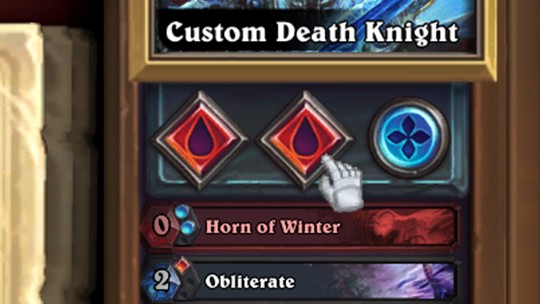
Here's how deck building with runes works
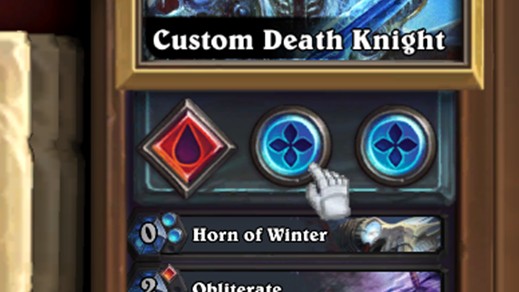
Here's how deck building with runes works
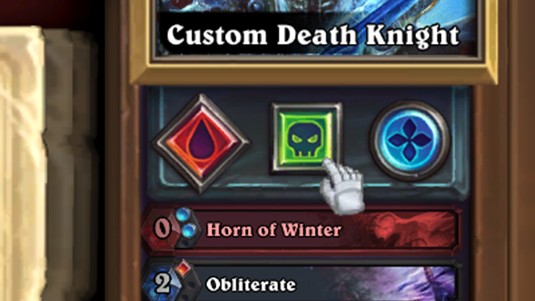
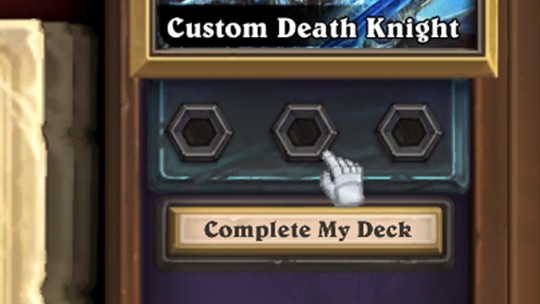
Here's how deck building with runes works
The runes you select at the start of deck building provides the combination for which cards you can use. So, if you picked two Blood runes, you may include any double Blood cards, but triple Bloods are out of the picture. If you have one Frost rune, then all the single Frost cards are fair game, but double or triple are out. And if you didn't pick any Unholy runes, then it means no green squares for you. Here's another important thing to note: The runic restriction only applies to the cards that start in your deck. It will be possible to use cards like Venomous Scorpid and School Teacher to discover cards with runes you otherwise wouldn't have access to, potentially unlocking forbidden synergies.
Triple threat
The three rune types correspond to specializations that Death Knights can make in World of Warcraft, and each confers a different playstyle. Having played Death Knight decks for a day at a recent preview event, it really is notable how much separation there is between, say, a triple Blood deck and a double Frost, single Unholy one. Let's take a closer look:
Blood: Playing with Blood runes is like being a Control Warrior but with less Armor and more Lifesteal. You'll constantly be draining health to restore your own and it'll be pretty demoralizing for any board-based decks to face a card like Blood Boil, which will tick damage with Lifesteal perpetually until the infected minions die. What Blood lacks are ways to quickly end games, so if you go for a triple Blood deck you can expect grindy games, a few big minions, and very little damage from hand.
Frost: If you do want to deal direct damage, play Frost. The coolest spec is also the one with the most boundary-pushing mechanics. Frost has a strong emphasis on card draw, Mana cheating, and burst damage. Spooky! As a longtime Rogue player, Glacial Advance is exactly what gets me excited. It goes face! (Sorry… let me chill out.) Frost runes tend to favour high-tempo spells and a well-stocked hand, just don't expect to make wide boards of resilient minions.
Unholy: If you do want to play more of a board swarm strategy, you'll have to turn to Unholy. These runes are by far the most minion-centric of the three. There are tokens, there are Reborn minions (yep, the old keyword is back) and there are board buffs. In our limited play time, it often felt good to include at least some Unholy runes if you're looking to build a deck that wants to generate Corpses reliably (more on that in a sec). Oh, and check out Lord Marrowgar. As you would expect given the inherent restriction, triple rune cards grant huge payoffs. I defy you not to shout 'BONESTORM!' at the monitor when playing him.
Ghouls just want to have fun
You may have noted a new mechanic in a few of the cards above. Did I neglect to explain it? Of corpse I did! "Corpse" is the other new Death Knight mechanic, and it's pretty straightforward. Whenever one of your minions dies, you get a corpse. (Lucky you.) There's a counter underneath the Mana bar that keeps track of how many you have in your own personal morgue, and it's up to you to use them as you see fit. If you're hanging out with Lord Marrowgar, that means a potentially big reward in the form of a bunch of big Risen Golems with Rush.
All cards that reference corpses will either raise or spend them. You need to stack up a certain amount of corpses in order to proc the associated effect on cards that need to spend them. When you have enough corpses, the spend card will glow yellow and deplete your corpse counter when you play the card. Note that you don't decide whether or not to spend the corpses. If you have the required amount available, they'll automatically be used.
Somewhat confusingly, when cards Raise minions, these don't turn into corpses after they die. It's spelled out on the tokens, and is obviously due to balance reasons, but you can bet that people will mess this up for the first few days.
Corpses are also what makes the Death Knight hero power so clever. Ghoul Charge is a one-damage ping on par with a hero power like Mage or Druid, but it reliably adds to your corpse count.
That covers the main Death Knight mechanics, but you may still be wondering how strong the class is. From our experience, this isn't going to be as wildly OP at launch as Demon Hunter was. The Rune system is not only a cool customization mechanic, it also serves as a safety valve to make sure that players can't throw all the most exciting stuff into the same deck.
Death Knight is also launching alongside the third set of the year instead of the first. That means that the other ten classes will have access to a deeper pool of synergistic cards this time, making for a much more level playing field than when Demon Hunter dropped.
Of course everyone is going to want to play Death Knight on day one, but hopefully that will be because it's new rather than because it steamrolls everything else.
There must always be new Lich King cards
Death Knight's core set needs to be larger to accommodate all three flavours of runes, so we're getting 32 cards instead of the normal 17. There will also be a 'Path of Arthas' mini-set released alongside March of the Lich King, which will include 26 cards that are legal in Standard until 2024's rotation. Core is free as always, but Path cards must be obtained through crafting, as a standalone purchase ($15 or 2,000 gold), or as part of the March of the Lich King mega bundle which is available now in the client or on Battle.net.
It's a different model from the Demon Hunter release, where all the "Initiate" cards were given to players free, and likely to cause some community blowback. Blizzard will doubtless point to the fact that the 32 free Death Knight cards in core outnumber the 20 cards that Demon Hunter gave us temporarily as the reason why.
Death Knight will also get the typical 10 cards per class as part of the March of the Lich King set, and all expansions going forward. Something to be aware of, though, is that it will be impossible for Blizzard to support all three rune types equally with every release. Much like how Warlock doesn't always get a good Zoo deck and Priest doesn't always get stupid bullshit, Death Knight won't always get support for each rune spec in every expansion. This was confirmed directly to us by Blizzard devs, and makes sense when you remember that classes only have 10 new cards per expansion.
We haven't seen all the cards yet, but I know for sure that I'll be starting with a Frost build leaning into doing a lot of damage for not a lot of Mana. We'll see if I need to full commit to Frost or if I can splash in Unholy for some board presence. I expect to be up all knight (sorry) trying different rune combos and hopefully won't feel like death (not sorry) at work the next morning.
